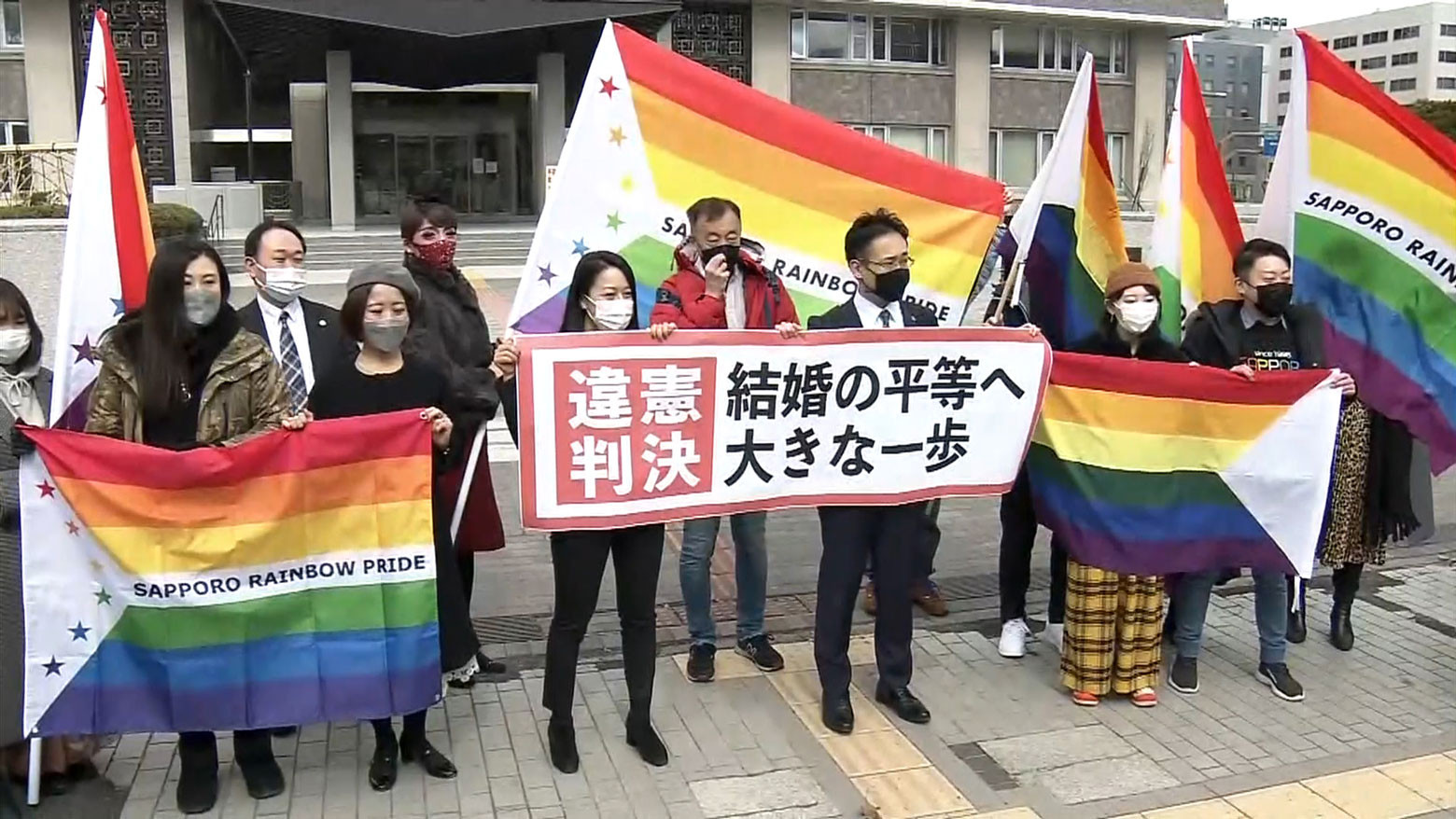Japan’s constitution states that marriage is based on “the mutual consent of both sexes.” Until now, courts have interpreted that to mean between man and woman. But the Sapporo court said this view contravenes other articles of the constitution that enshrine equality.
One of the plaintiffs in the case said the verdict reduced him to tears.
“We get used to thinking it’s natural that we face discrimination and there’s nothing we can do about it,” said Kunimi Ryosuke at a news conference hours after the ruling. “Today, we got a strong message saying that should not happen.”
Kunimi and his partner were one of three same-sex couples living in Hokkaido who filed suits against the Japanese state in 2019. They argued that not being legally allowed to marry infringes on the principles of freedom and equality guaranteed by the Constitution.
Presiding judge Takebe Tomoko agreed. She said there should be no difference in legal benefits based on sexual orientation, which cannot be selected or changed based on will. She added that not allowing same-sex marriage is discriminatory and lacks reasonable grounds.
Watch Video 00:41
The verdict also acknowledged that societal views are changing and there is growing demand to remove the legal distinction between homosexual and heterosexual.
The one disappointment for the plaintiffs was that the judge dismissed their claim for compensation, but the ruling still represented a significant victory in the decades-long battle for same-sex marriage in Japan.
Same-sex marriage in Japan
The state’s narrow interpretation of marriage is a product of the era in which the rules were written. The current Civil Code and the Family Registration Law were both enacted in the 1940s.
The first significant move toward marriage equality came in 2015, when Tokyo's Shibuya and Setagaya wards started issuing certificates to same-sex couples, recognizing their partnerships as equivalent to marriage. Though the document is not legally valid, it can allow couples to receive the same public services as married couples, including eligibility to apply for city-run apartments and to be treated as relatives in hospitals.
More than 70 other municipalities have since followed suit, and more than 1,500 couples have registered.
A stepping stone for change
Nearly 30 countries and territories have recognized same-sex unions across the world, according to the International Lesbian, Gay, Bisexual, Trans and Intersex Association. Taiwan joined the list two years ago and remains the only place in the region in which same-sex couples can marry.
Tanamura Masayuki, a professor at Waseda University's Faculty of Law and an expert on issues involving sexual minorities, called the declaration of unconstitutionality “epoch-making.”
“The key question was to what extent the judges would take changes in public opinion and social conditions into consideration," he said.
The ruling itself will not change the law. Same-sex marriages will be recognized in Japan only if parliament passes new legislation, and key members of the ruling Liberal Democratic Party have already suggested they won’t back such a change any time soon.
Japan's Chief Cabinet Secretary Kato Katsunobu said the government doesn't believe that the Civil Code’s marriage provision violates the Constitution. He added that he acknowledges the court didn’t accept this view, but declared the overall ruling a victory for the government.
Meanwhile, the head of the LDP’s Policy Research Council, Shimomura Hakubun, said allowing same-sex marriage so soon, without the community’s understanding, could lead to “social confusion.”
But Tanamura believes the Sapporo verdict could be just the boost the marriage equality movement needs: “The ruling won't immediately create legislation to guarantee rights for same-sex couples, but it will help advance discussions in the Diet.”

